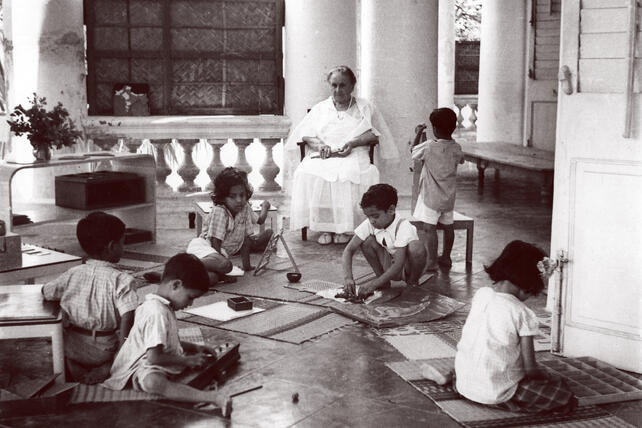Montessori in India
The Montessori movement has been deeply connected to India from the beginning. Many of India’s most pioneering educational innovators were in touch with Maria Montessori’s ideas, including the Theosophical Society, educator Gijubhai Badheka, and Nobel Prizewinning poet Rabindranath Tagore. Mahatma Gandhi met Maria Montessori in England and Rome in the early 1930s and visited Montessori schools in Europe. An official delegate from the princely Government of Mysore attended the First International Montessori Training Course in Rome in 1913. From then on, there were Indian delegates at the London, Rome, and Barcelona courses throughout the 1920s and 1930s. Early Children’s Houses were established in Bombay (now Mumbai), Calcutta (now Kolkata), Hyderabad, Benares (now Varanasi), and Allahabad.
In 1939, Maria Montessori and her son, Mario, came to India at the invitation of Dr. George Sydney Arundale, president of the Theosophical Society, and his wife, Rukmini Devi, founder of the renowned Kalakshetra Cultural Institute, to give the first Indian Montessori Course at Adyar, Madras (now Chennai). The Montessoris remained in India during the war years until 1946 and returned again from 1947 to 1949. During these years, in addition to developing Cosmic Education for the Elementary-aged child, Maria Montessori researched the needs of the child under three, culminating in the publication of The Absorbent Mind (1949).
